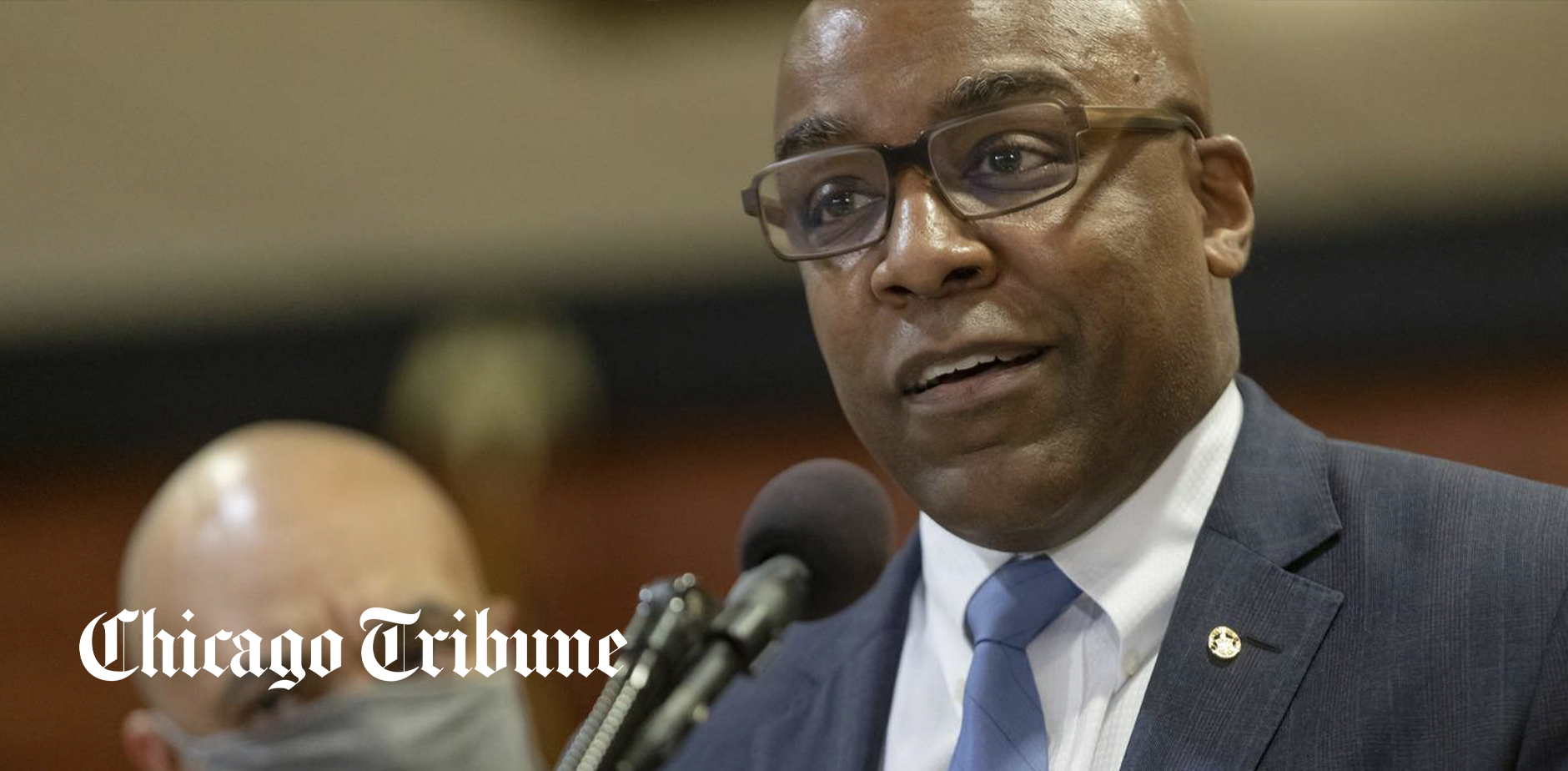
By: Annie Sweeney & Jeremy Gorner | June 29, 2022
Illinois law enforcement leaders fighting a surge in gun violence announced Wednesday the launch of a searchable database they say will allow departments to more quickly access information on how illegal firearms are moving around the state.
The Crime Gun Connect platform, available to law enforcement only, contains some 100,000 federal gun trace records from 200 Illinois police agencies.
The Illinois attorney general’s office worked with data scientists to build the platform, which will allow the records to be easily searched, sorted and filtered by law enforcement agencies that are seeking details and patterns about how firearms move into the illegal market and are, potentially, used in violent crimes.
The platform stands to “modernize and simplify” the current way police investigate gun trafficking and other gun crimes across the state, Attorney General Kwame Raoul said at a news conference announcing the database.
Trace data and information on guns recovered in crimes is provided to local law enforcement agencies that request it by the U.S. Bureau of Alcohol, Tobacco, Firearms and Explosives, the federal agency which maintains the data.
But federal law prohibits ATF from digitizing any of the data, so it has historically been provided on paper or in PDF form and can be cumbersome to use in investigations, officials said.
“Instead of being able to search and analyze data immediately, law enforcement agencies that request tracing data must sort through paper records and spreadsheets to get basic information on the source of crime guns,” Raoul said. “This is often valuable time lost.”
Crime Gun Connect, built in collaboration with the Illinois State Police and gun safety group Everytown for Gun Safety, is designed to address that problem, according to Adam Braun, executive deputy attorney general.
He explained that investigators would be able to enter terms into a search box and immediately receive information. There are also mapping options.
“We’ve built a system that allows law enforcement to search for information the same way we all Google for information every single day,” Braun said.
To access the database, law enforcement agencies must be enrolled in the ATF’s existing eTrace system, a web-based application, and must also agree to share information with other agencies.
On Wednesday, officials showed one example of the type of patterns that could be found in the database: Nine handguns recovered near a Chicago neighborhood where gun violence is prevalent were found to be all purchased within weeks of each other in the same part of Indianapolis.
“To us, that is a clear indication of someone who is engaged in trafficking and straw purchasing,” Braun said.
Illinois State Police Director Brendan Kelly said at the news conference that law enforcement needs every edge they can get to fight gun violence, and the new platform will be key to providing “timely intelligence.”
“Gun violence is a complicated phenomenon, with no single solution. Pushing back is often a game of inches, successes achieved through a combination of many tools,” Kelly said. “We now have one more tool and one more chance to save a life being brought to bear on this noble effort.”
Officials and community members at the news conference urged law enforcement to take advantage of the database, saying the key to reducing gun violence is shutting down illegal trafficking routes and finding so-called straw purchasers, who buy guns for those who are barred from ownership.
Valerie Burgest, of the gun safety organization Moms Demand Action, talked about her son, who was fatally shot when he was 23. That was nine years ago, and the homicide has not been solved.
“I stand before you as a mother who had to bury her only child,” she said. “So this is extremely personal for me. Because any tool that helps law enforcement solve murders in this city and in this state is an important tool and one that we all will embrace.”
